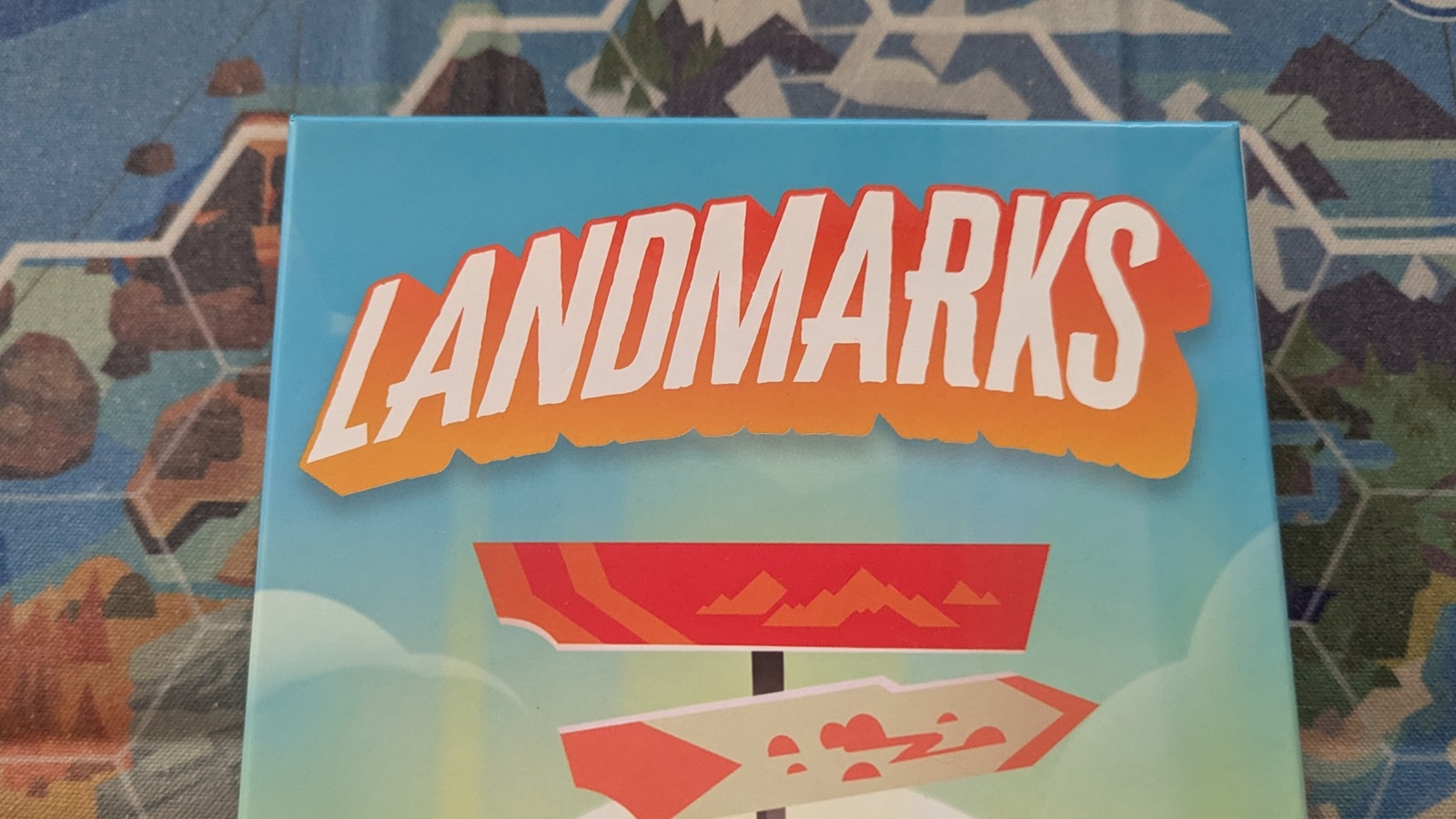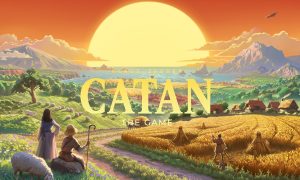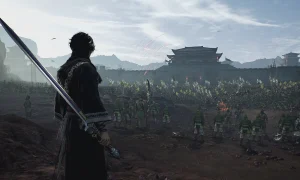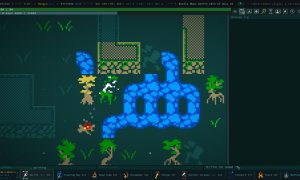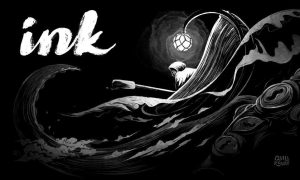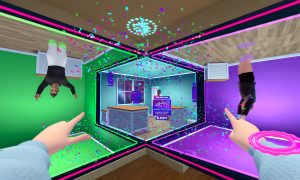Word guessing games are super hit or miss for me. Sometimes I enjoy them and other times I struggle to connect with the game. A part of that stems from word games usually being player dependent. If you’re just not understanding what your teammate(s) are trying to communicate, the experience can just be more frustrating than fun. I really like Landmarks, the casualness of the experience helps keep the game feeling lighthearted. This is a game where there’s room for error and your mistakes can even help you. Let’s put on our explorer’s hats and discover what Landmarks has in store for us.
Overview
Landmarks is a word guessing game where one player takes the role of “The Pathfinder” while the remaining players become “The Party.” Every map of the island starts with three tiles with their location and words preselected. From these three tiles, the goal for everyone is to find as much treasure as possible and then find the exit space somewhere on the island. This is accomplished by The Pathfinder as they will give The Party one word clues on which tiles to explore next. These clues must adhere to some rules: they are one word, no directions, and no using the same parts of words over. Like other word association games, we are here to get into the mind of another player and understand the limited message they are able to send. Once The Pathfinder has given their clue, The Party must decide which adjacent tile The Pathfinder is trying to guide them to.
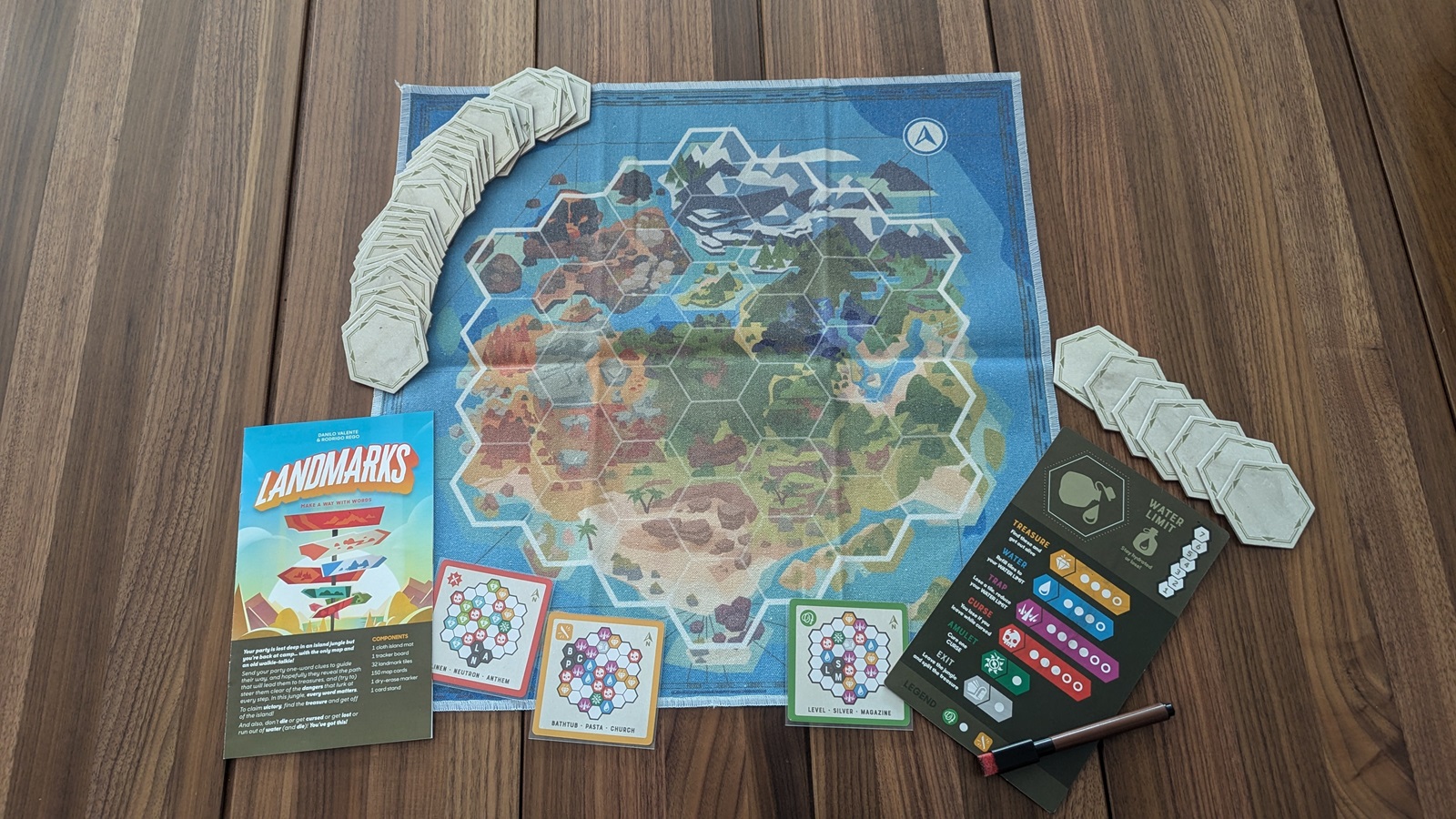
There are additional tile types that complicate the journey to find treasure, there are water spaces that refill the water reserve. What’s water? It’s the limit to how many tiles The Pathfinder has in reserve to give out clues. Should the tiles ever run out, everyone loses. The island has limited water tiles so eventually you will run out. You start with seven tiles based on your water limit and also scattered around the island are trap tiles. If you land on a trap, you lose one reserve tile and lower your reserve limit by one. The more traps you find, the harder the game will get. There are also curse tiles that should you step on mean that you must find the amulet tile before you find the exit. If you leave the island while cursed, it will catch up to you and everyone loses. There’s only one amulet space on the island so should you ever become cursed twice that also loses you the game.
That’s the core of Landmarks. You simply want to find as much treasure as possible and then safely make your way to the exit. There are two map types for the cooperative mode: “easier” green islands and harder yellow islands. I say “easier” because these maps still prove quite challenging. The harder maps offer more treasure to find, but also more traps and curses to stumble into as well. There’s also a competitive mode where two teams compete to be the first team to find four treasures. This mode lacks the water and trap tiles in favor of a direct race. In the competitive mode you can still lose via curses so teams still have to watch out for those.

Where would you place the tile when your clue is Solid?
Pros
Landmarks is a simple game that improves upon its predecessors by allowing players to make mistakes. The competitive mode of Landmarks is very similar to Codenames with the main difference in that there’s more room for mistakes. I prefer the cooperative mode, but that’s just a personal preference. There’s multiple ways for The Pathfinder to give out their clues. They may barrel through trap spaces, but hopefully go directly to treasure. The Pathfinder can also avoid bad tiles by trying to go around them. Each island is an interesting puzzle to solve. Watching someone grapple with a puzzle they’ve created can be quite funny. On the other side, The Pathfinder is engaged in trying to solve the puzzle that is their island and their players. I’ve seen all kinds of facial expressions as The Pathfinder stares at their island card and heard a few curse words too.
The Party is the other half of the puzzle that isn’t in the rulebook. The Pathfinder is looking to give out clues that lead The Party specific directions. If a tile is adjacent to multiple previously explored tiles, they’re now looking for a word that relates to all the words adjacent. The Party will inevitably place tiles where The Pathfinder didn’t want them to, but those mistakes are important. As you play you discover how people interpret your clues and where they start placing them gives you more information to work with. This wiggle room is what makes the game work for me. Everyone’s brain is different and room for mistakes takes a lot of pressure off The Pathfinder. You don’t actually have to find all the treasure to win, though the rulebook really wants you to.

For a small game the components inside are also quite nice. The cloth map of the island is double sided with one side having terrain artwork and the other being plain. The map cards are perfectly fine in quality. You do get 150 map cards which means there’s plenty of replayability. There’s only one dry erase marker and eraser and I wish those were higher quality, but it is easily replaced.
Cons
I don’t have a whole lot of negatives for Landmarks other than it is still a word guessing game. This style of game can be very person dependent. The heart of Landmarks is trying to understand someone else’s clues and successfully interpret them. Sometimes you’ll connect with someone right away and other times you just don’t understand what they were trying to communicate.
Another common downside to these types of games is that some players will want to be giving out clues and others will hate that role. Landmarks doesn’t solve this problem, but for me having room for those mistakes helps alleviate that pressure the clue giver feels.
Chris began tabletop gaming in college and quickly fell into the addictive world of cardboard. Beginning with D&D and Catan he became an enthusiast of all things gaming; analog or digital. Chris, now a relapsed MtG player, loves connecting with people via gaming through RPGs, board games, and video games. A particular favorite is testing friendships through social deduction games.

Landmarks is a fun word guessing game with wonderfully simple rules. It offers easy gameplay with a surprisingly complex puzzle to solve. Whether you’re playing the cooperative or competitive mode the game shines as players try to understand each other through the one word clues. For the clue giver they’re stuck solving a puzzle they’ve helped create and the rest of the players are trying to unravel the clues given out. What makes the game so great for me is that mistakes become part of the game and actually help the players as they continue deeper into the island. If you’re looking for a word guessing game, I suggest you explore Landmarks, just don’t run out of water.
PROS
- Rules are simple
- Cooperative and Competitive mode
- Multiple challenge levels
- Room for mistakes lets you learn alongside everyone
CONS
- Like a lot of words games, Landmarks can be very people dependent
- Some people will adore being The Pathfinder while others will hate it
See below for our list of partners and affiliates:
